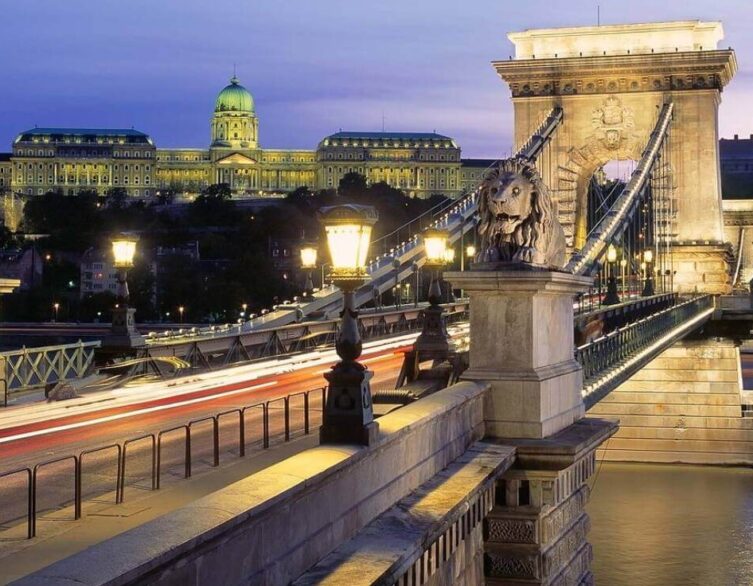How Budapest Dethroned Europe’s Digital Nomad Capitals

Walk through the tree-lined streets around Szent István Park or along the bustling Bartók Béla Avenue in Újbuda on any given afternoon, and you’ll notice something remarkable. The café terraces are packed, but these aren’t tourists snapping photos of their cappuccinos or local university students cramming for exams. Instead, you’ll find focused professionals in their thirties hunched over laptops, conducting conference calls in English, German, or Spanish while Budapest’s golden autumn light filters through the café windows.
These are the new settlers, the wanderers of the work-from-home generation who have helped Budapest officially claim the crown of Europe’s remote work capital in 2025. But what drew them here, and what does this transformation mean for visitors exploring the Hungarian capital?
The Great Migration from West to East
For years, Lisbon reigned as the Mecca for European digital nomads. However, by 2024, the Portuguese capital had become a victim of its own success. Skyrocketing property prices, overwhelmed infrastructure, and growing local resentment forced the international community to search for alternatives. Budapest stepped into this void, positioning itself not merely as a cheap alternative but as a destination offering premium services at accessible prices.
The city’s trump card became its world-class internet speed and reliable digital infrastructure, essential lifelines for software developers and data analysts. According to recent rankings, Budapest placed fifth on Flatio’s list of top digital nomad destinations for 2025, outperforming many Western European capitals thanks to this combination of cutting-edge connectivity and affordability.
Safety also became a decisive factor in the shifting geopolitical landscape of 2025. While several major Western European cities experienced deteriorating public security, Budapest maintained its rare quality of feeling safe for evening strolls along the Grand Boulevard or through Margaret Island. This predictability, combined with vibrant cultural life and central European geography, created irresistible appeal for professionals who can work from anywhere but refuse to compromise on quality of life.
Újlipótváros: The Silicon Valley of Pest
The most visible evidence of this transformation appears in the changing fabric of the city itself. While digital nomads of the 2010s primarily sought out the ruin bars of the Party District in the seventh district, today’s generation wants something different. The nomad elite of 2025 is older, wealthier, and more demanding, seeking quality specialty coffee over cheap beer, quiet parks over loud bars, and inspiring community spaces over crowded tourist traps.
This shift has transformed Újlipótváros and the Bartók Quarter into the new centers of remote work culture. Along Pozsonyi Street, the sight of MacBooks filling café tables has become commonplace, while former retail spaces have been converted into boutique coworking facilities that blend home comfort with professional office environments.
These spaces no longer resemble the chaotic open-plan offices of the past. Throughout the thirteenth district, hybrid community spaces have proliferated, functioning as quiet workstations during the day and transforming into networking events, workshops, or wine tastings in the evening. Popular options include KAPTÁR on Révay köz, which attracts a vibrant community of entrepreneurs and freelancers with its inspiring atmosphere and modern amenities, and Muse Közösségi Iroda on Szent István Boulevard, which draws creative professionals with its contemporary design and focus on collaboration.
This functional transformation has breathed new life into previously residential neighborhoods while creating challenges for local communities adapting to constantly changing international neighbors.
The Real Estate Ripple Effect
The economic implications of this trend run deep. The rental market structure has dramatically shifted over the past two years, with property owners discovering that digital nomads represent the perfect middle ground between long-term renters and riskier Airbnb tourists. These tenants typically stay for three to six months, pay in euros or dollars, and willingly spend twenty to thirty percent more for fully equipped, plug-and-play apartments.
This dynamic has driven up prices, particularly around Jászai Mari Square and Nyugati Railway Station, creating difficulties for Hungarian renters while simultaneously improving the overall quality of the housing stock. Landlords have been forced to modernize, install air conditioning, and provide high-speed internet to remain competitive. Rental prices now range from approximately €500-€800 for studio apartments to €900-€1,500 for two-bedroom units, with central districts commanding premium rates.
The market has also seen the emergence of co-living houses specifically designed for this demographic, where residents rent private rooms but share kitchens, living rooms, and workspaces. This model addresses one of remote work’s biggest challenges: the isolation that can come from working alone in a foreign city.
More Than Just a Laptop in the Crowd
The human dimension of this transformation becomes clear when speaking with the remote workers themselves. Many arrive in Budapest after testing other European capitals and find something different here—a genuine professional community rather than just another tourist destination. The city’s size proves ideal: large enough to offer constant discoveries but compact enough to reach anywhere within twenty minutes by bicycle or using the MOL Bubi bike-sharing system.
Best deals of Budapest
The public transportation system earns particular praise from international arrivals, especially those coming from countries with less developed transit networks. Budapest’s BKK network, combined with excellent integration of micromobility options like scooters and bikes, creates seamless urban movement that digital nomads deeply appreciate.
The city’s gastronomic revolution has also become a significant attraction. The presence of international cuisines alongside high-quality local ingredients available at markets like Lehel Market Hall or Fény Street Market enables the healthy lifestyle that many remote workers prioritize. Traditional Hungarian favorites appear on menus alongside globally inspired dishes, creating a culinary landscape that feels both rooted and cosmopolitan.
Why Budapest Won 2025
Budapest’s success doesn’t stem from a single factor but from a fortunate alignment of multiple advantages. City leadership and market players recognized that the future of urban prosperity lies not in weekend bachelor parties but in highly skilled workers who stay for extended periods and contribute meaningfully to local economies.
The value proposition remains compelling even as prices have risen. Budapest still costs significantly less than Vienna or Munich while offering comparable service quality. The Central European timezone works perfectly for coordinating with both American and Asian clients. Strong, organized expat and nomad communities host regular professional events, while the BKK network and micromobility integration create effortless urban navigation.
Perhaps most importantly, the historic city center provides an inspiring atmosphere that stimulates creativity. The architectural grandeur visible from café windows or coworking space terraces offers daily motivation that generic office parks simply cannot match. The city ranked highly in 2025 assessments specifically because it delivers this rare combination: professional infrastructure within an environment that feels alive with history and culture.
What This Means for Visitors
For tourists exploring Budapest, this digital nomad boom creates an unexpectedly positive environment. The proliferation of quality cafés, coworking spaces, and international restaurants means better infrastructure throughout the city. Neighborhoods like Újlipótváros and the Bartók Quarter offer visitors sophisticated dining and café options they might not have discovered in traditional tourist guides.
The remote work community also contributes to a cosmopolitan atmosphere that makes Budapest feel welcoming to international visitors. English is widely spoken in cafés and restaurants catering to digital nomads, and the city has developed services—from apartment rentals to Hungarian language classes—that benefit both long-term remote workers and tourists seeking deeper engagement with local culture.
Hungary has even streamlined its residence permit application process in 2025, making it easier for remote workers to establish legal residency. While this primarily affects those planning extended stays, it signals the country’s commitment to attracting international talent and creating infrastructure that benefits all visitors.
Balancing Growth with Character
The crucial question facing Budapest is whether it can maintain this momentum without losing the distinctive charm that initially attracted digital wanderers from around the world. The city succeeded where Lisbon stumbled by offering quality alongside affordability, but continued growth threatens to tip that balance.
Monthly living costs for digital nomads typically range from €1,200-€2,000, covering accommodation, food, transportation, coworking space membership, and leisure activities. This remains manageable for professionals earning Western salaries while working in Central Europe, but rising costs could eventually price out both international remote workers and local residents.
For now, Budapest appears to have grown into its new role successfully. The city has repositioned itself on the global map not through aggressive tourism campaigns but through organic appeal to a demographic that values substance over spectacle. The Danube-side Silicon dream isn’t just functioning—it’s flourishing.
As you explore Budapest’s thermal baths, historic landmarks, and vibrant neighborhoods, you’re experiencing a city in transition. The laptop-carrying professionals sharing your favorite café aren’t merely temporary visitors—they represent Budapest’s evolution into a truly global city that honors its past while confidently embracing its future. Whether this balance can last remains to be seen, but in 2025, Budapest stands as proof that European cities can attract international talent without sacrificing the authentic character that makes them worth visiting in the first place.
Related news
Related events














